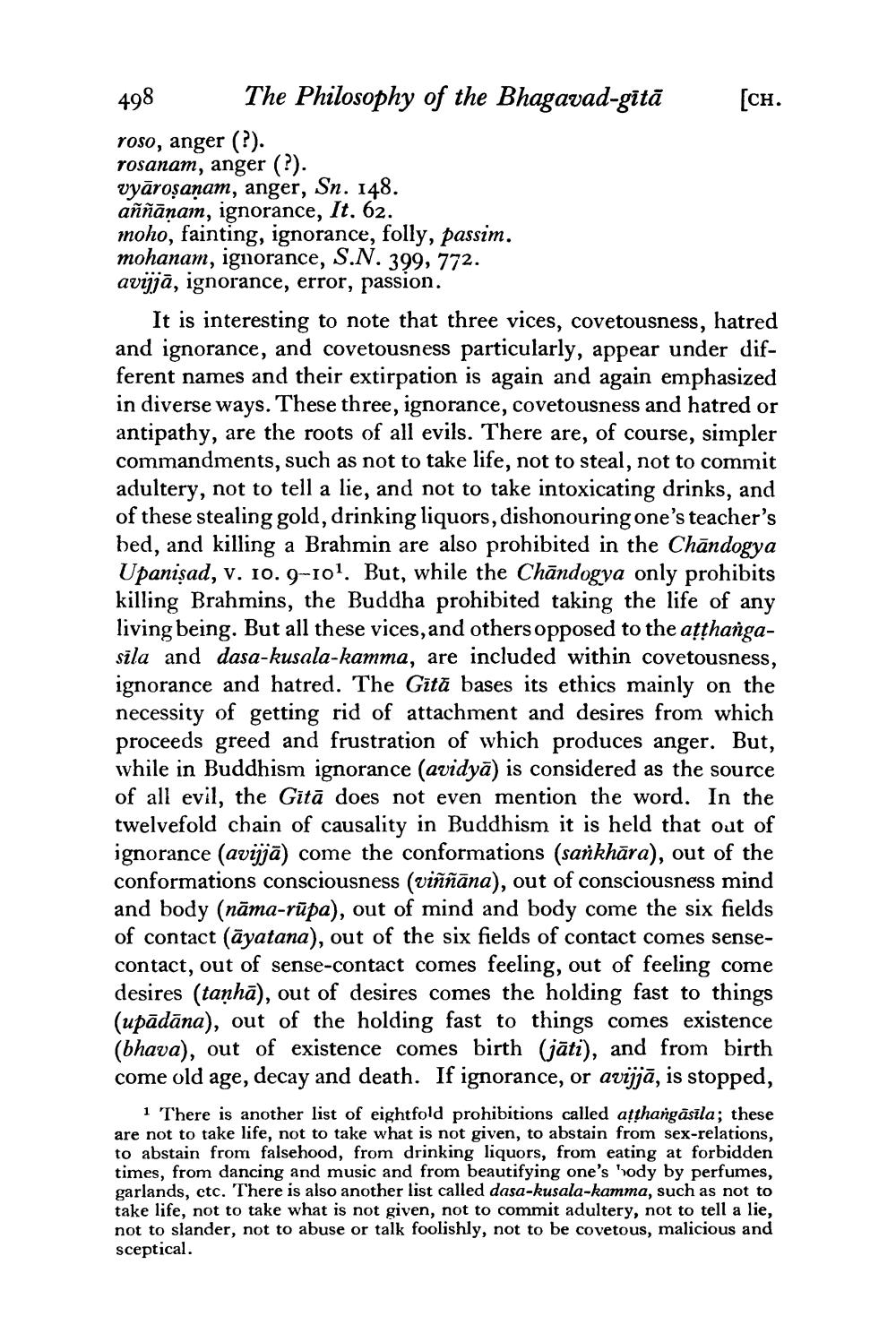________________
498 The Philosophy of the Bhagavad-gitā [CH. roso, anger (?). rosanam, anger vyāroṣaṇam, anger, Sn. 148. aññānam, ignorance, It. 62. moho, fainting, ignorance, folly, passim. mohanam, ignorance, S.N. 399, 772. avijjā, ignorance, error, passion.
It is interesting to note that three vices, covetousness, hatred and ignorance, and covetousness particularly, appear under different names and their extirpation is again and again emphasized in diverse ways. These three, ignorance, covetousness and hatred or antipathy, are the roots of all evils. There are, of course, simpler commandments, such as not to take life, not to steal, not to commit adultery, not to tell a lie, and not to take intoxicating drinks, and of these stealing gold, drinking liquors, dishonouring one's teacher's bed, and killing a Brahmin are also prohibited in the Chāndogya Upanisad, v. 10. 9-101. But, while the Chāndogya only prohibits killing Brahmins, the Buddha prohibited taking the life of any living being. But all these vices, and others opposed to the aţthangasila and dasa-kusala-kamma, are included within covetousness, ignorance and hatred. The Gītā bases its ethics mainly on the necessity of getting rid of attachment and desires from which proceeds greed and frustration of which produces anger. But, while in Buddhism ignorance (avidyā) is considered as the source of all evil, the Gitā does not even mention the word. In the twelvefold chain of causality in Buddhism it is held that out of ignorance (avijjā) come the conformations (sarkhāra), out of the conformations consciousness (viññāna), out of consciousness mind and body (nāma-rūpa), out of mind and body come the six fields of contact (āyatana), out of the six fields of contact comes sensecontact, out of sense-contact comes feeling, out of feeling come desires (taṇhā), out of desires comes the holding fast to things (upādāna), out of the holding fast to things comes existence (bhava), out of existence comes birth (jāti), and from birth come old age, decay and death. If ignorance, or avijjā, is stopped,
1 There is another list of eightfold prohibitions called at:hangăsila; these are not to take life, not to take what is not given, to abstain from sex-relations, to abstain from falsehood, from drinking liquors, from eating at forbidden times, from dancing and music and from beautifying one's 'ody by perfumes, garlands, ctc. There is also another list called dasa-kusala-kamma, such as not to take life, not to take what is not given, not to commit adultery, not to tell a lie, not to slander, not to abuse or talk foolishly, not to be covetous, malicious and sceptical.




